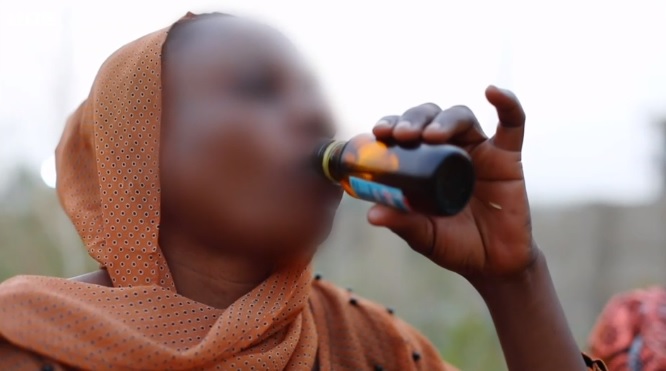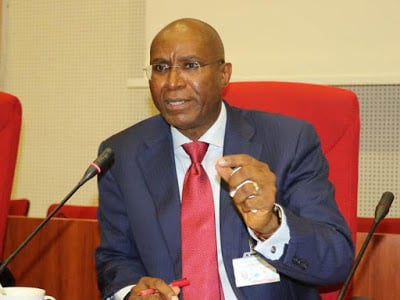In more ways than one, last week’s hurried outlawing of the importation, production and sale of cough drugs with codeine component in Nigeria shows the gross lack of competence amongst public office holders here.
Now, lack of competence is not always due to incapacity. Sometimes, it could be out of unwillingness to act or simply a lack of concern for the impact of the situation on the common man. Public officers gripped with that base essence which prioritises self-preservation over the collective cannot relate until the very unlikely prospect that harm comes close their homes.
One other deeply painful thing about the knee-jerk reaction, which culminated in the sealing of three pharmaceutical companies on Monday, is that it took that stinging report from the British Broadcasting Corporation Africa Service for the usually lethargic Nigerian government to take action. At least, three Nigerian media outlets namely PUNCH, Channels TV and TVC had at one point or the other in the last five years done extensive reports on the escalating abuse of drugs for an assortment of reasons especially amongst teenagers across the country.
Advertisement
Even the Senate, an arm of the Federal Government, just six months back, called national attention to the codeine burden borne by the entire 19 states in the northern part of the country. It estimated that about three million bottles of codeine are consumed daily in Kano and Jigawa states alone and called for speedy attention from the authorities. But as they say, a prophet has little or no honour in his own home, so government officials ever hardly pay attention to in-country postulations. Were it not so, last week’s ban and the subsequent massive investigation launched by the National Agency for Food and Drug Administration, would have been executed and forgotten years back. Nigeria would have been saved the epidemic of the daily consumption of millions of bottle of codeine-spiced drugs that we currently face.
But even when some of our public officials are alert enough to see sense in the alarm raised by the local media and other citizens, they are too deep into their survivalist deference and eye-servicing of appointing authorities than to contemplate the judgment of posterity on themselves and their tenure.
Sadly, neither these unconscientious public officials nor the mass of Nigerian people seems to understand how much of jeopardy the future of this country is subjected to by the universal lackadaisical attitude to the control of anything, be it population, health or access to illegal substances.
Advertisement
Even now that the Federal Ministry of Health and its agencies are stirred from slumber and ready to bare their fangs, you wonder how far-reaching steps that they have taken can be. How much they are still willing to go and how many governors of states realise that hoping to solve this problem at all demands a collaboration that is as dogged as it is deliberate. We shall return to this point presently.
Since there is no protocol about resolving any situation in Nigeria, NAFDAC, has in consonance with tradition, hit the sledge hammer on the ant by shutting down pharmaceutical companies named in the expose like that would wipe off the scourge of drug abuse. But there are a couple of questions that the agency and its superintending ministry should answer.
Are they absolutely sure that Emzor, Peace Standard and Bioraj, all named in the BBC report are the only pharmaceutical companies with codeine leakages in Nigeria? Has the dragnet been extended to all other pharmaceutical companies and if so, how many more of such would be shut down when found guilty of dispensing this substance illegally? Is there a way to track the operations and compliance levels of pharmaceutical companies whose business interest may supplant public good? Even if all drug producing and importing companies in Nigeria were shut down or forced to comply with the established procedure for the sale of drugs laced with the addictive substances, what measures are in place to ensure that a country, which is unable to stop the smuggling of guns or rice, does not receive these banned substances through its legendary porous borders? In case, there is success with this attempt to ban codeine, a success for which there has been no precedence in this country, what are the authorities doing to forestall chances of adulterations that could even be injurious?
It is doubtful that any thought has been given to any of these posers, which is another testimony to the tentative, absent-minded solutions that Nigeria proffers to issues.
Advertisement
However, assuming steps taken so far adequately address the challenge that codeine poses to Nigeria, do they address the reality that Nigerians have found assorted alternative means of getting high far in advance of the NAFDAC clampdown on codeine? Do the authorities also take cognisance of the fact that some of these alternatives come with almost no cost at all in comparison to the almighty codeine? So, how do the interventions so far introduced prevent a reign of sniffs from gum, septic tanks, abuse of spirits, marijuana and so many other cheap alternatives that the necessity of the ban on codeine will cause our youths to invent?
Addicted people do not come out of addiction by the ban of substances that get them spaced out; they only get free of the destructive habit through well-thought-out rehabilitation programmes that also attend to the issues that precipitated their addiction. Workers at the factory that are now being shut and those that may be shut in future will complicate the unemployment market and ultimately add to the social economic pressure that led some of those who have succumbed to addiction to this wide path of destruction in the first place.
No one in government is talking about tending the millions of young ones who are evidently currently under influence. Neither does government see the need to declare a national emergency where governors and ministers and all leaders of the country would come together to discuss practical ways to redeem millions that are already captive to drugs and save several hundreds of millions that are at the fringe of temptation.
Nigerian leaders, currently held down by their own opium-ambition (to get into new office or retain what they currently hold in 2019), do not see the correlation between the intractability of the insurgency in northern part of Nigeria and headquartering of the drug abuse industry in that part of the country.
Advertisement
Neither government nor those who vote for them see the growing disenchantment of the youth; the crash of the family unit, increasing domestic homicidal tendencies; hitherto unknown sexual appetites and behaviours; the wave of kidnapping and the overall sense of insecurity in the country as evidences of the arrest of the minds of men and women by forces beyond them.
But all of it is no surprise. Nigerians are pathetically a people permanently on opium. When it is not of the religious type that makes people dogmatic and unquestioning even in the face of contradiction and pervasion of the faith that they profess, it is the political where men have become the gods of men and women. The younger generation has only taken their indulgence a notch higher than that of their forebears. And that is the way of nature, the successor is expected to be an improvement of their precursor, whether for good or for bad, nature always does fulfil its course. So, is there any hope that Nigerians can ever make the best of blessings of natural order by investing in her future?
Advertisement
Twitter: @niranadedokun
Advertisement
Add a comment







